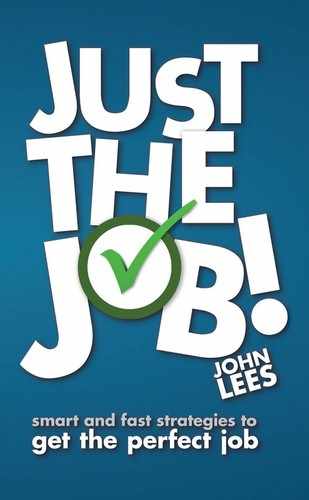Preface – the lonely lobby of the job hotel
I’M LOSING AN ARGUMENT WITH BILL, one of my clients. He’s been looking for a job for five months and, like so many at this stage, announces that he is ‘lowering his sights’ in terms of salary and status. He plays his trump card: ‘Listen, John – there are only so many jobs out there. The best job search in the world can’t change that fact. Let’s be realistic …’
I’m tempted to jump on that last word, because the word realistic is too often a second-hand picture of reality. People have been telling me ‘this is a really bad year to be looking for a new job’ every year for two decades. But I’ll take Bill’s main point on the chin. If there aren’t enough jobs to go around, what’s the point of jazzing up your job hunting strategy? Some cynics say that all any job hunt programme does is to distract you with exercises and lists of activity until you drop your hope of a dream job and start fighting for the scraps the market has to offer.
What’s really going on here is one big unstated reality. ‘Bill,’ I say, ‘five years ago people fell into jobs. They went to the market with a strategy that was just about working and found jobs that were just about right. Today a lack-lustre job hunt will net you virtually nothing.’ Bill is looking glum, so I tell him about the job hotel: ‘Three years ago when you were made redundant you visited the job hotel. You stood in the lobby looking vaguely hopeful and people came up to you and offered you things. There were hotel staff around to help. The big, well-signposted conference rooms just off the lobby were full of exhibitions and presentations. The help desks were manned. There were queues of people offering you invitations, wanting to know more about you.
‘This week you go back to the job hotel and now the lobby is full of people who have lost their luggage and missed their flights. Everyone is shouting whilst at the same time trying to solve their own problems. The only person available to help is the night porter, who doesn’t have very good English and has no idea where the keys are kept. There may be helpful people around, but nothing is signposted and all the doors are locked. So you and several hundred people spend all night knocking timidly on doors that probably won’t open, getting no answers, and eventually you end up commiserating with each other in the bar. Yet amidst all the chaos, some people arrive, get what they want and leave. How did they do that?’
The analogy is imperfect, but at least Bill smiles. He’s starting to get my point. There are times when the job hotel is kind to the passive traveller – you will be processed and packaged. When a storm comes and the power lines are down, when times are difficult, the hotel is packed with people it can’t help. People hang around the lobby, or keep trying doors they know are closed. However, some people do leave the lobby of the job hotel. The customers who get some kind of result are the ones who go off-limits, the ones who go down the road to somewhere else, the ones who organise, improvise and seek hidden solutions, even if that means exploring in broom cupboards or the closed hotel ballroom.
In tough times, ‘something will come along’ doesn’t cut it. It can lead to a distinctly unhealthy cycle of joblessness and discouragement. Today’s job hunter is looking for an edge, for a killer CV, for knockout interview answers, but realises that finding a job is also a numbers game requiring long-term stamina. However, identifying a job that is going to be a good fit requires more than perseverance. In a noisy market it’s harder for the right employer and candidate to meet. Today’s expert job hunter looks at angles, not numbers. What can you do differently to get you closer to the right kinds of conversations?
There are roles out there: organisations are looking for enthusiastic and capable people and don’t know how to find them. But the mass market doesn’t work for candidates or employers – every appointment is a niche appointment. The right jobs are even harder to find. They are unlikely to be advertised. Often what you need is the right conversation at the moment a decision maker has an unsolved problem or an opportunity. It also helps to have the patience not to panic and to keep yourself in the right state of mind to seize opportunities when they arise.
Today’s job seeker needs laser-guided applications, not blanket bombing. Undertake your career transition as professionally and openly as if you were doing it for someone else – building on possibilities, staying curious, always asking for connections and ideas, and taking rejection as part of the deal. There’s no perfect solution, but it’s clear that the process of having conversations with people seems in some way to be at the heart of a better approach, one that shortens job hunting time and gets you a job that feels worth doing at least three days out of five.
(An earlier version of this piece by John Lees was published by Harvard Business Review Online at HBR.org – reprinted here with permission.)
